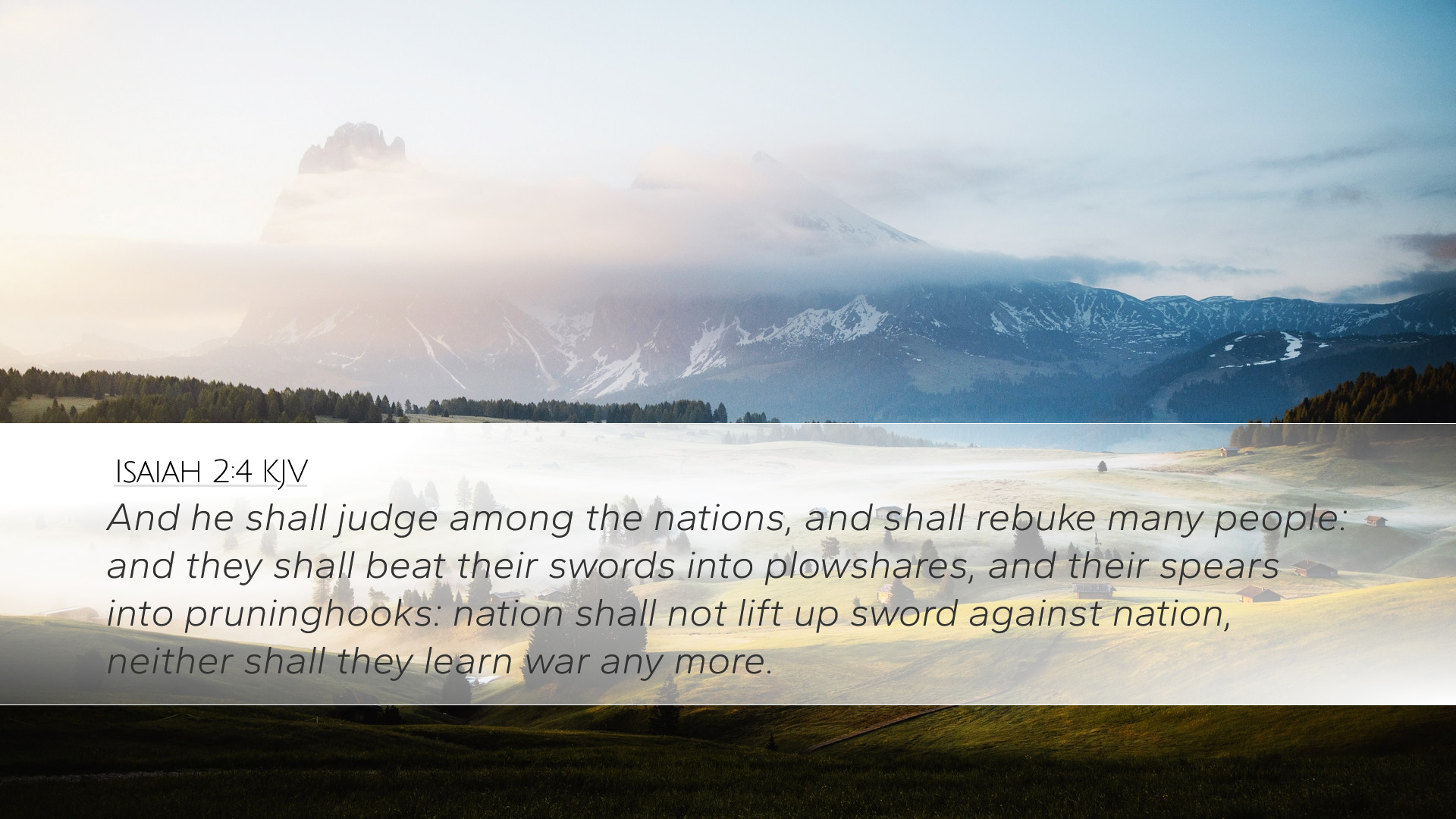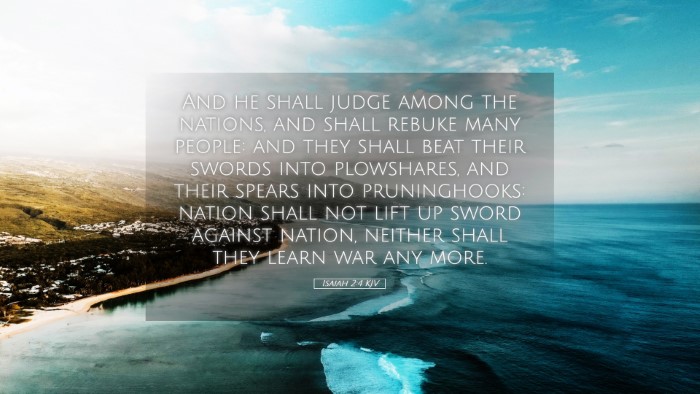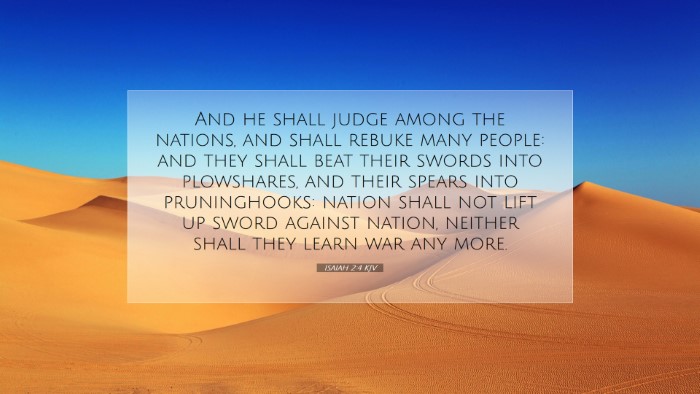Commentary on Isaiah 2:4
The verse Isaiah 2:4 states:
"And he shall judge among the nations, and shall rebuke many people: and they shall beat their swords into plowshares, and their spears into pruninghooks: nation shall not lift up sword against nation, neither shall they learn war any more."
Introduction
This passage from Isaiah serves as a prophetic declaration concerning the future peace and justice that will be established by God through His chosen King. It speaks to the universal reign of the Lord and the transformative power of His judgment. As we unpack this verse, we draw from the insights of revered commentaries to highlight its theological significance and practical implications.
Contextual Background
Isaiah prophesied in a time of turmoil for the nation of Israel. The people faced external threats and internal moral decay. The context of this prophecy centers around God’s promise of restoration and peace, not only for Israel but for all nations. This vision of peace signifies the ultimate hope that believers have in God’s redemptive plan.
Theological Insights
- Judgment and Justice: According to Matthew Henry, God's judgment among the nations reveals His authority and righteousness. The passage emphasizes that God's rebuke will lead to a recognition of His sovereignty, prompting people to turn from violence and sin.
- Transformation of Instruments of War: Albert Barnes highlights that the imagery of transforming swords into plowshares illustrates a profound change of heart among the nations. Where once there was enmity, there shall be agricultural prosperity, symbolizing peace and productivity.
- Universal Peace: Adam Clarke notes that this verse anticipates a future where the cessation of war becomes a reality. The absence of conflict suggests a comprehensive peace that transcends geographical and cultural boundaries, demonstrating the inclusive scope of God’s salvation.
Interpretation of Key Phrases
"He shall judge among the nations"
This phrase indicates the role of God as the ultimate arbiter of justice. Henry asserts that it reflects the establishment of God’s judicial authority that replaces human injustice and corruption. It emphasizes the end of tyranny and the establishment of true equity.
"Beat their swords into plowshares"
The act of beating swords into plowshares symbolizes the rejection of violence and the embracing of peaceful existence. Clarke stresses that this transformation signifies a profound change of purpose where instruments of war are repurposed for agriculture, indicating a desire for life and sustenance instead of death and destruction.
"Nation shall not lift up sword against nation"
This prophetic declaration promises a future without war. Barnes elucidates that this cessation of hostilities is rooted in divine intervention, where nations turn from rivalry to collaboration. This reflects a core theme of the Gospel—the call to love one's neighbor, extending even to enemies.
Practical Applications
- Hope in God’s Future: For pastors and theologians, this verse is a reminder of the hope that believers have in God's ultimate plan for humanity. In preaching and teaching, it can serve as a foundation for emphasizing God’s sovereignty over history.
- Call to Peacemaking: The transformative message of Isaiah 2:4 calls the Church to actively engage in peacemaking efforts. Followers of Christ are urged to be instruments of peace in a world often filled with conflict.
- Social Justice Advocacy: The commitment to justice and equity reflects the heart of God. Students and scholars can explore this text as a basis for engaging in social justice issues, promoting human dignity, and advocating for the marginalized.
Conclusion
Isaiah 2:4 encapsulates a profound vision of hope and peace that resonates deeply within the human heart. The insights gleaned from public domain commentaries enrich our understanding of this text, revealing its multi-faceted implications. As we reflect upon this passage, let us be inspired to embody the principles of peace, justice, and transformation in our lives and communities.


